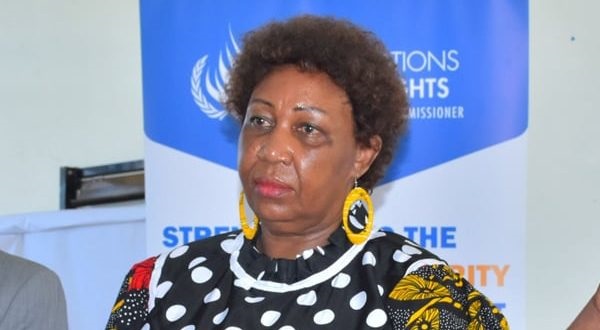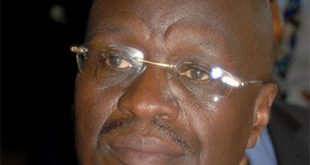
New focus is on the economy, instead of civil and political rights
Kampala, Uganda | DICTA ASIIMWE | For years, Uganda Human Rights Commission (UHRC) has produced annual reports with various variations of this excerpt from its 2020 report: “The government was reluctant to investigate, prosecute, or punish officials who committed human rights abuses, whether in the security services or elsewhere in government, and impunity was a problem”.
As the government does not intend to respect civil and political rights and a population that is keenly aware of this fact, UHRC appears to be looking to change its scope of work, to focus on social and economic rights.
Supporters of UHRC insist fragrant disregard of the commission’s traditional work should not be read to mean a lack of interest in human rights by the Uganda government.
Officials at the Uganda Human Rights Commission (UHRC) instead say Uganda has other kinds of human rights on its mind.
“When you focus on specific rights, you miss the point,” says Crispy Kaheru, a commissioner at the UHRC.
Officials at UHRC say they are now rebranding away from civil and political rights, to fit in with the government’s commitment of focusing on the fight against poverty. They say rights to access essentials like food and social services are important too.
Kaheru says those interested in examining Uganda’s interest in human rights should look beyond civil and political rights to implementation of programs that cover rights to work, healthcare and education.
Kaheru says UHRC is now involved in the implementation of different government programs including the Parish Development Model (PDM).
As PDM focuses on improving the economic wellbeing of Ugandans, officials at the UHRC argue that this represents the government’s increased interest in economic and social wellbeing rights.
The move towards social and economic rights seems to contradict the reasons for the establishment of UHRC. The UHRC website notes that this permanent body was established following the promulgation of the 1995 constitution to monitor the human rights situation in the country.
The website says the constituent assembly established UHRC to prevent a repeat of Uganda’s turbulent history that had been characterised by arbitrary arrests, detention without trial, torture, brutal repression with impunity on the part of security organs during the pre and post-independence era.
Under the current leadership of UHRC, however, Mariam Wangadya; the commission chairperson has made a name confronting victims of the human rights violations that her organisation was established to prevent.
One public highlight of Wangadya confrontations with individuals believed to victims of human rights violations was on October 10, when she accused the National Unity Platform (NUP) of lying to UHRC about supporters alleged to have been abducted by the state.
Wangadya said NUP had registered as either missing or tortured, people that had been involved in motor accidents and had nothing to do with state arrests. She said others were arrested by police and released on police bond.
But when NUP, on Independence Day, hosted families of their supporters that they say are missing since the 2021 general elections, Wangadya was accused of being partisan and has refused to perform her role of holding accountable those that illegally arrest and torture Ugandans.
However, Ms Wangadya seems to be doing well with the donor community that has for years, supported some of UHRC’S work.
Dr Katja Yvonne Kershbaumer, the Austrian Ambassador to Uganda, says she is fascinated by UHRC’s focus on social and economic rights, although she decries the limited documentation in this area.
Elsie Attafuah, the Resident Representative for the United Nations Development Programme (UNDP), on the other hand says her understanding of why comprehensive human rights as viewed by Uganda opened her eyes, to how such as outlook would aid delivery of the sustainable development goals (SDG).
“Human rights as defined by you have connection to all of the 17 SDGs,” says Attafuah, who was speaking at a function to hand over two double cabin trucks to UHRC.
The vehicles, paid for by Austria but bought and donated by the UNDP, are intended to help UHRC play one of its constitutionally mandated roles of civic education.
The civic education, according to Attafuah, is timely as Uganda starts preparation for the 2026 general election.
In addition to focusing on things like the PDM, Wangadya says UHRC is also fundraising from other entities, other than the government.
“Our ability to reach out to Ugandans has been hampered by inadequate support, and the closure of DGF (Democratic Governance Facility),” says Wangadya.
Information from officials at UHRC shows that before its closure DGF had been giving Shs3 billion to the commission every year. With just Shs400 million every year from government, the officials say this money is for fixed expenses such as salaries and that this means there is no money to go out and do the work.
Wangadya also adds that UHRC lost more support this year, when the Ministry of Foreign affairs wrote to the United Nations High Commissioner for Human Rights (OHCHR) to leave Uganda.
In the letter, the Ministry of Foreign affairs stated that Uganda had matured enough to handle deal with any human rights violations through UHRC.
However, Ms Wagadya says OHCHR had been funding UHRC to train security forces who have been identified in several UHRC reports as the leading human right’s violators in Uganda. They are involved in the abduction, torture and arrests without trial.
 The Independent Uganda: You get the Truth we Pay the Price
The Independent Uganda: You get the Truth we Pay the Price



